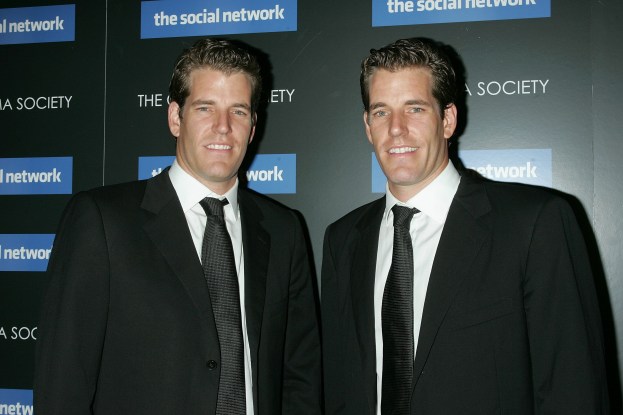
Mark Zuckerberg can breath a sigh of relief: Cameron and Tyler Winklevoss, the twins famously depicted in the Academy Award-winning film The Social Network, said this week that they would not appeal the Supreme Court ruling that upheld their settlement with Facbook and its co-founder and CEO Mark Zuckerberg, reports Reuters. The decision to throw in the towel comes after seven years of ongoing lawsuits.
The settlement terms were originally agreed upon in 2008, following an extensive legal battle over whether Zuckerberg had stolen the idea for Facebook from them while they were all still students at Harvard University. The court ruled that the Winklevosses would receive $65 million worth of cash and stock in Facebook. After the agreement, however, the Winkevosses said they planned to appeal the settlement, and fight for more money, because they believed Facebook withheld crucial evidence.
With the stock they received now worth far more than it was in 2008, the twins on Wednesday told the US Court of Appeals for the Ninth Circuit in San Francisco that, after “careful consideration,” they have decided to let the 2008 settlement stand.
Upon hearing the news that its struggles with the pesky Winklevii were over, Facebook released a statement saying, “We’ve considered this case closed for a long time, and we’re pleased to see the other party now agrees.”
The legal woes are far from over for Facebook, however. With the number of users quickly approaching 700 million, the social network remains in a tussle with Paul Ceglia, a wood pellet salesman from upstate New York who claims to own 50 percent of Mark Zuckerberg’s Facebook shares. Facebook has repeatedly said that Ceglia is nothing more than “scam artist” whose claims are entirely fabricated.
Editors' Recommendations
- Facebook ordered to pay $650 million in facial recognition lawsuit
- Documents show Facebook used user data as bargaining chip against competitors
- The EU could hit Facebook with billions in fines over privacy violations


